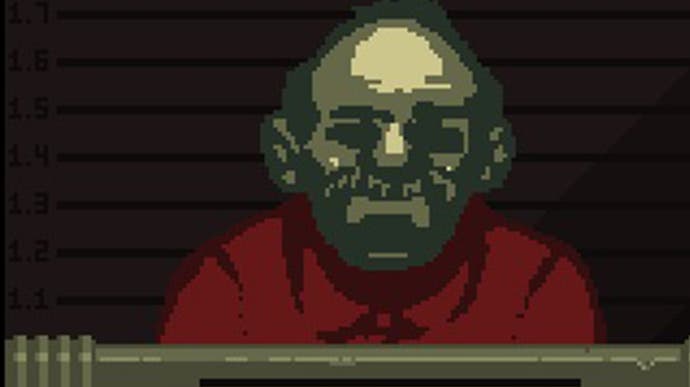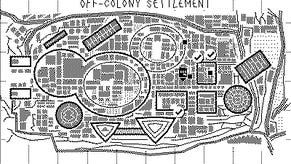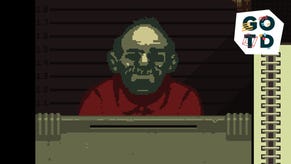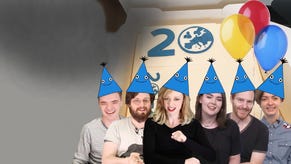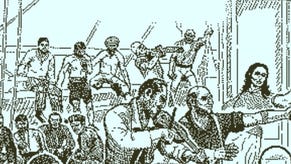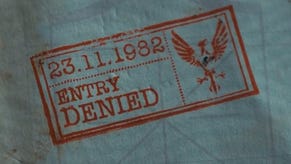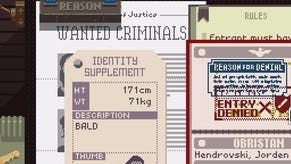Somebody should make a game about: Dyslexia
In time for Dyslexia Week 2020.
I'm pretty good at 'hard' games. I'm not world-class, not by any means. I won't be signed to an esports team any time soon. But I can grapplehook through Sekiro, summit the peaks of Celeste and dodge bullets in Cuphead like the best of them. The internet told me to 'git gud' and I got fairly decent! There is one game, however, that gives me trouble. Papers, Please.
Papers, Please isn't known for its difficulty. The game casts you as an immigration officer for a small, fictitious, Eastern Bloc state. People trundle up to your checkpoint and you have to examine their documents before you decide whether or not to let them through. Apparently, Papers, Please is full of devious moral quandaries. Your code of ethics will be tested as you balance your duty to your nation with the burdens of paying rent and 'doing the right thing'. It sounds great. I'm sure it is great. But I wouldn't know. I couldn't get past the first level.
You see, playing Papers, Please involves carefully scanning documents and teasing out tiny inconsistencies. Does this photograph match the person in front of you? Is the date right? Has their passport been stamped by the right agencies? At this point, I feel the malaise of confusion descend. I seem to have let a spy into the country. The clock is ticking. I get flustered. I have now let in a whole agency of spies, bootleggers and other assorted enemies of the people. The klaxon sounds. My shift has ended. I have been fired and my family have starved. Drat. Dyslexic people clearly shouldn't become immigration officers.
An estimated one in ten people suffer from some form of dyslexia. Dyslexia is one of a number of specific learning difficulties. 'Specific' because they affect only one area of learning. You might appear eloquent, smart and able in all other respects, but your homework looks like the dog has eaten it. Or maybe written it. This inconsistency can be exasperating for others, especially teachers, and the disparity between your apparent ability and your actual performance is often attributed to laziness.
As the name implies, dyslexia is defined by difficulties with reading and writing. Reading can be a chore. You often miss or muddle words. Sometimes whole sentences vanish. Spelling is another sore spot. You might know that 'missing' has two S's, but you've only written one. Even with a spellchecker, homophones can be hazardous. Capitals creep in where they're not Wanted. And everything takes aeons.
However, these reading and writing issues are actually the consequences of a deeper problem with information processing. Dyslexic people can have difficulty parsing sets of instructions. They may have issues with organisation and, as consequence, poor time management. They can lose things, can find it hard to read maps and sometimes have difficulty distinguishing their left from their right.
The causes of dyslexia are not fully agreed upon. Some have proposed that it might be a problem with the interconnectedness of different brain regions. Others think it might be due to issues with the cerebellum, the nubbin at the bottom of your brain that plays a critical role in movement. Whatever the cause, it would be good to show frustrated teachers and colleagues what it is like to be dyslexic. And if games can simulate working as a Soviet border officer, they're probably up to the task.
In fact, you can already use games to emulate some of the symptoms of dyslexia. All you have to do is knock back six shots of Patrón and try the first level of Papers, Please. But that doesn't capture everything. It doesn't capture trying to follow a simple recipe, reading the steps in the wrong order, missing a line then realising the meal is burnt. It doesn't capture the frustration in your partner's eyes when you miss an item off the shopping list or once again fail to follow a fairly simple to-do list. Finally, it doesn't capture the mild stigma and associated self-doubt that accompany the disorder. I will always remember the time a friend's brother suggested that dyslexia was just a clinical term for stupidity. I enjoyed watching him squirm when I politely told him that I was dyslexic, but in truth I often worry that I have fabricated my own condition to get special treatment. I only have to turn off the spellchecker to prove that this isn't true. However, there is still room for greater public literacy in dyslexia. And someone should make a game about it.
